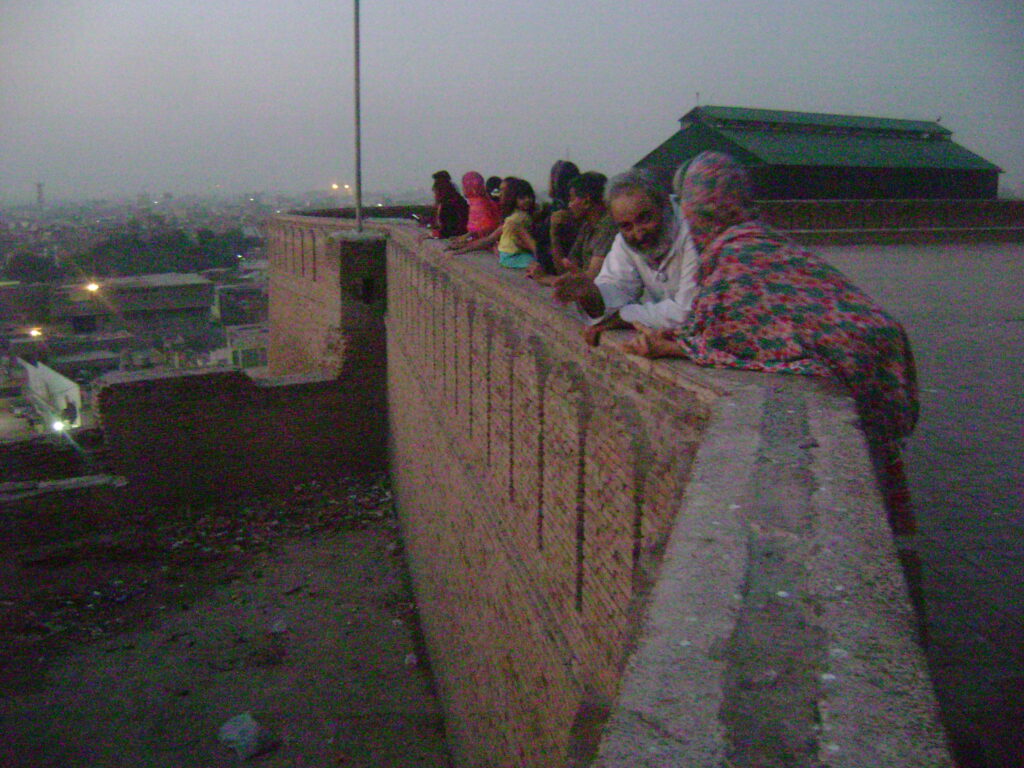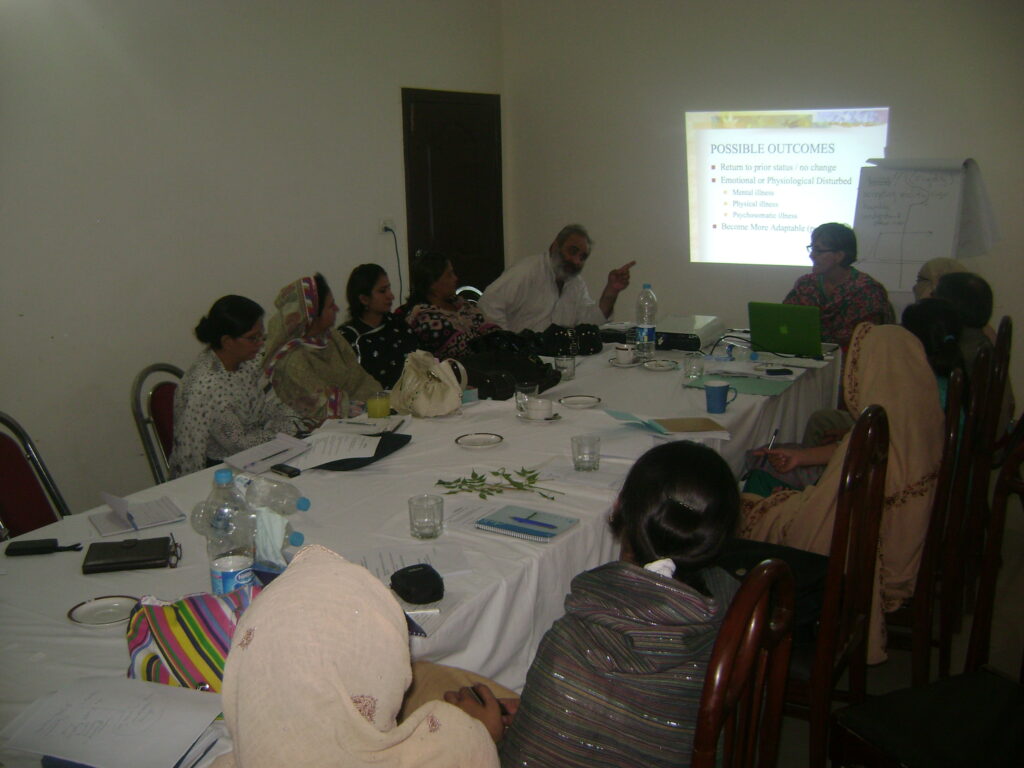The walled city of Multan, Pakistan, is a warren of narrow streets where the rays of sun seldom reach. Yes, before 1947, when the city was inhabited by the Sikh and Hindu business community, it was thriving with merchants, shops and more spacious family homes. Life changed quickly with the partitioning of India and the creation of Pakistan. This chaos was marked by hundreds of thousands of people massacred in 1947 and the unprecedented cross migration that occurred between Pakistan and India. Within no time the Hindu and Sikh population of the walled city of Multan was replaced by Muslims from Rotak, the most fertile region of Indian Punjab; they, unlike the former merchant class of residents of the city, had been successful farmers.

Due to the large number of migrants from Rotak each house was shared by multiple families. With no other skills and no lands to farm, the male members of the migrant population were forced into day labor and a poverty that very few have been able to break in the past more than 70 years. Those who were able to break the poverty cycle left and never returned. With today’s rapid population growth most families are crowded into single rooms within these old buildings, have no access to running water and no proper WASH facilities. The majority of the households don’t have proper electricity connections, relying on stolen power, which they get by illegally hooking to the supply lines when they can.
In the midst of this chaos that Mr. Aurungzeb Yousafi, known as Master Sahab (the teacher), shines like a beacon of hope. He believes that education and life skills trainings will enable the residents to break the poverty cycle and enable them to support other members of their community in need. According to him, his job is to set the wheel in motion so that the positive forces of nature will keep it in motion. In 1999 he established the Mashal Grammar School in a house that was gifted to him by his father. Here, the families of the children pay what they can, though most do not pay anything. Those fees are paid through donations from Mr. Aurungzeb’s friends and his income as a merchant/trader.
He gives the credit of his contribution to his late father, who was among the very few fortunate, successful immigrants who became successful yet never left the walled city. Mr. Aurungzeb does not want to disclose where or how these contributions come because the local community still remembers him as a pillar of the community. It is a local belief that disclosure ruins good deeds.

In 2010, massive floods destroyed untold numbers of homes and livelihoods along the Indus River and Multan became the relief hub for Punjab province, which was the hardest hit. At this time, the United Nations established The Gender Task Force to ensure that humanitarian agencies addressed the needs of women and girls, people with special needs and those belonging to minorities. Mr. Aurangzeb became an active member of this group.

He and others noted that one of the neglected areas of the response was psychosocial support. In order to fill this gap they invited Dr. Patricia Omidian, who lived in Karachi at that time, to volunteer her time, come to Multan and facilitate a three days training on communal psychosocial support. Mr. Aurangzeb found the material that he has given the same training to numerous social workers and community members. In addition, psychosocial support and Focusing are an integral part of teaching and activities at his school. And, because there is no space in the community where women and girls can socialize, his school premises are open to women, where they can come, to sit in the open and socialize. They can also use the premises for family functions. This holistic program is a unique model of community psychosocial support, led by his wife.
According to Mr. Aurangzeb “all it takes is good listening, reflection, and empathy- knowing your own inner guests and helping others know who their inner guests are.”